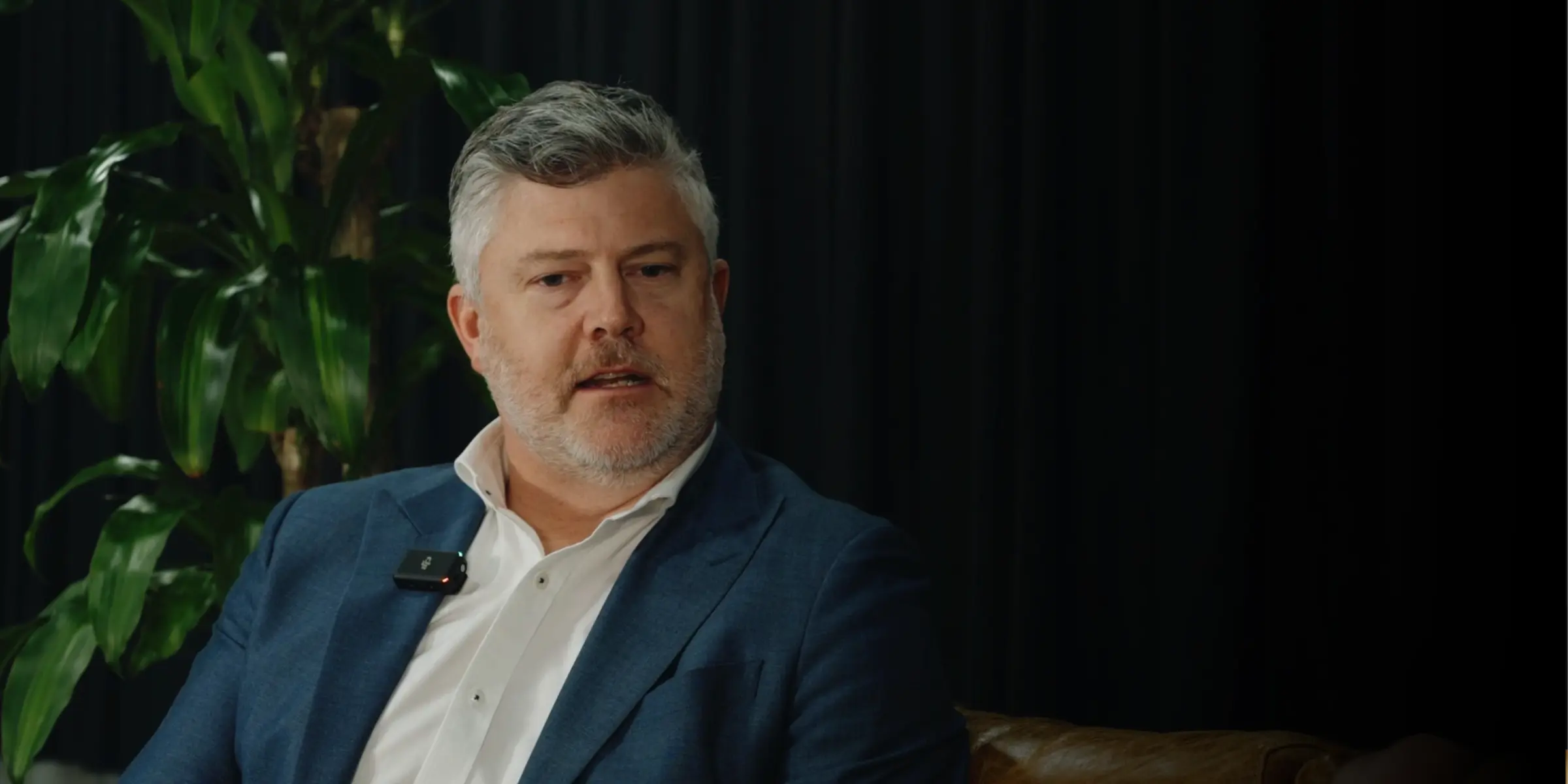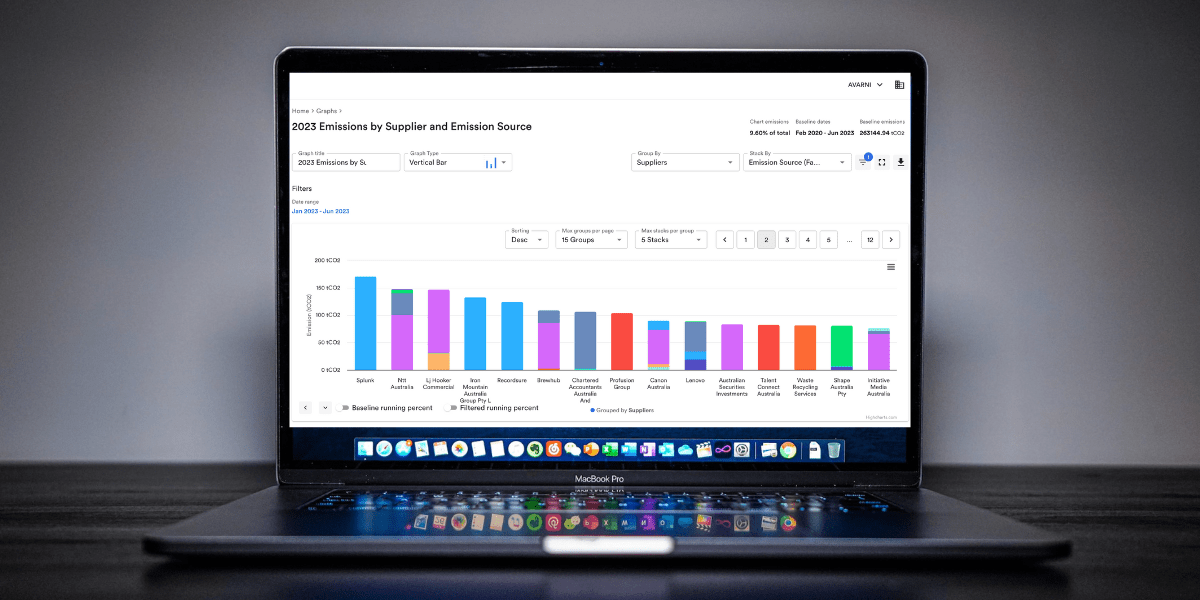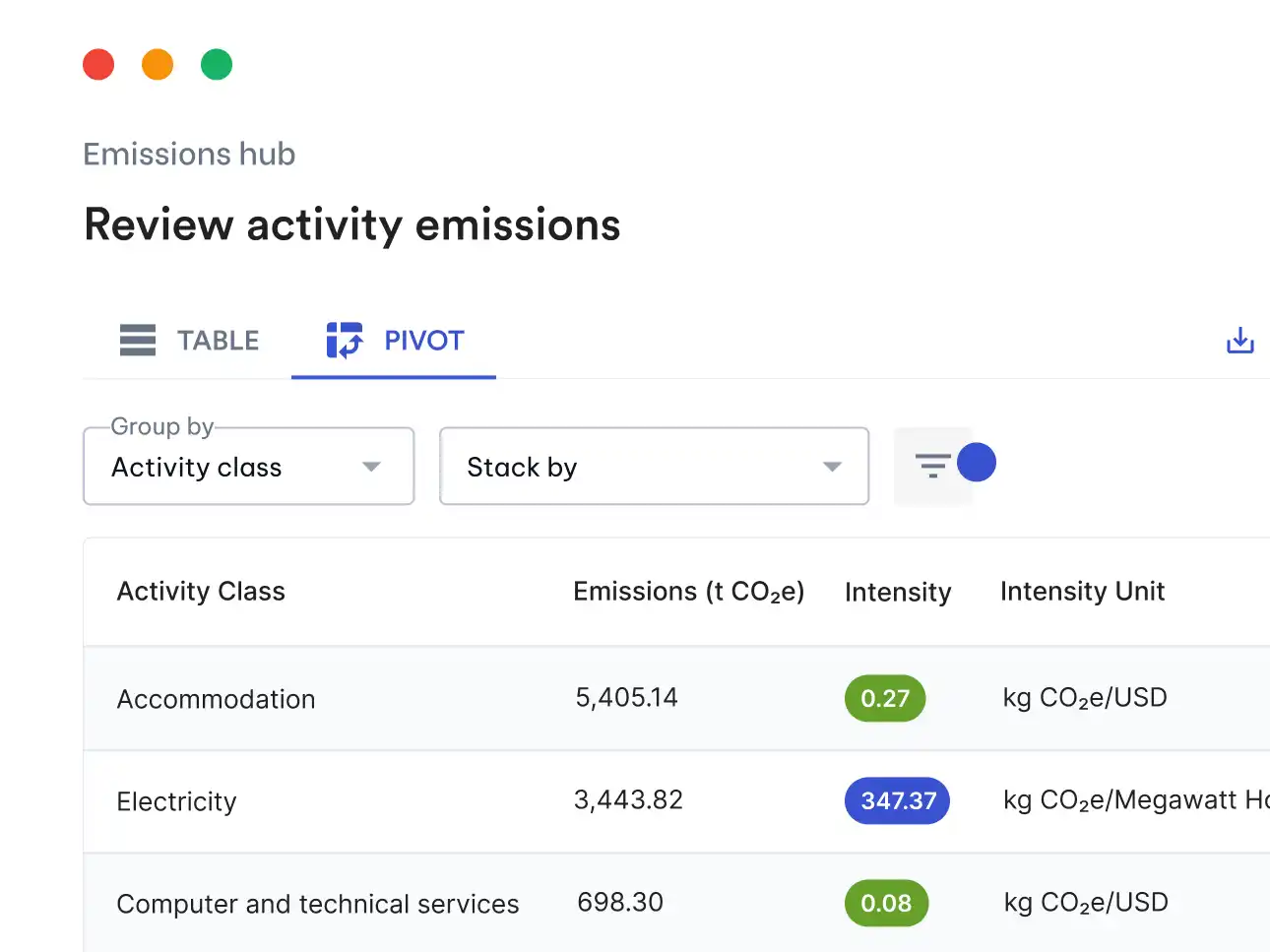As part of our Carbon Accounting Expert Series, we’re excited to share an insightful interview between Avarni Co-Founder and Co-CEO, Misha Cajic, and Michael Cox, APAC Director of Sustainability Consulting at Schneider Electric Sustainability Business. In this conversation, Michael reflects on his journey in the sustainability field, discusses the shifting landscape of corporate decarbonization, and highlights the critical role technology plays in simplifying carbon management. Alongside the transcript, we’ve included the full video interview, offering a closer look at how Schneider Electric is supporting clients in tackling sustainability challenges and seizing new opportunities.
Below is the transcription of a conversation between Michael Cox and Misha Cajic, recorded in Melbourne on October 9, 2024.
Misha: Thanks Mike for joining me. It's a pleasure to have a chat with you about your journey and what Schneider Electric is doing for its clients in this space.
Michael: Thank you Misha, I really appreciate being here.
Misha: So I'd love to learn a little more about what got you into the space, and how you got to where you are today.
Michael: Yeah, well it's a long journey. There's a lot of people that are in our industry now that have perhaps been in it quite recently. Mine started back in 2003, which is nearing 25 years now, which is a bit scary. My journey started back when I was in the mining sector and the manufacturing sector and I just didn't feel like, as an engineer, I didn't feel like it was the right fit for me, and I'd always had a bit of a kind of a nature focus and a natural environment focus in my lifestyle.
So I wanted to get into, not setting policy, but reducing the emissions, if you will. And the property sector at the time was the most mobile in that space and the most engaged. And so I had the pleasure of working with one of the large facilities management companies on reducing emissions associated with occupancy of property and the design and development of property. So that was fantastic. And over that time I built a consulting team that worked on supplier engagement and circularity and waste management and energy efficiency and carbon reporting.
But a lot of this was very proactive, not compliance based. It was very voluntary. It was only the very large organizations that were doing it at the time. You know, the banks, and some of those large corporates. From there, I moved through that part of the industry and started up my own little consulting business. And that was a lot of fun because we were collaborating with people and it was very flexible, and it was very exciting.
But when the construct around climate management and carbon emissions and management reporting really started to gain traction, I made the move into Schneider Electric. So we’ve got a very big organization, some 4,000 consultants globally, with a lot of fantastic engagement around some issues that are really important to me around climate change, climate risk, the emergence of the Australian sustainability reporting legislation that's coming starting on 1 January around decarbonization and the decarbonization of operational emissions, but also supply chain emissions and Scope 3. And that's as a subset of the broader ESG area, which I thoroughly being part of the moving conversation.
Technology and data plus insight and explanation is the strongest play for clients.
Misha: So what are the differences that you've noticed between the motives for companies to do this voluntarily? And now with the new mandatory regulation that's come in, how has the conversation changed?
Michael: The voluntary audience that has been engaged in this for a while have, I guess, been rewarded in some ways for the work that they’ve put in. And so those that have been engaging with the Task Force for Climate-Related Disclosure for some time (TCFD), they're the ones that are really at the forefront in terms of already sharing their performance, and they're disclosing not only their emissions, but also their approach to climate risk, and the progress that they've made over time from some early baselines.
Other organizations that are responding to this, because it's now compliance requirements, are having to gear up pretty quickly and I think that's creating quite a bit of stress and challenge. I think there' s a lot of concern about the capacity to respond and the resources available to do so. And those organizations that we're working with, it's a pleasure to help them on that journey, but you can see that that is a challenge for them because of the speed they've got to respond.
I think the key one for me is their data. A lot of what we need to talk to them about, about their risks, about their opportunity to decarbonize, about their need to report and disclose is obviously underpinned by data or the insights that data creates. And that's where they're having some of the most challenges, I think, gearing up for and deciding how best to manage that data.
Misha: Yeah, there's always a motivation for clients to try and get things right from the get go. And they're anxious to take that first step towards something that may not be perfect. What role do you see technology playing in streamlining that journey for the client so that they've got a clear path forward to decarbonizing, in particular the supply chain, which, as you say, is such a complex and multi-year journey?
Michael: That's a great question. I think one of the things to consider is that people often equate technology with perfection and accuracy and is repeatable. Yes, the process is repeatable. That's the beauty of it. It is auditable because it's being undertaken consistently. It doesn't have to be a black box. It can be articulated so that when you're looking at the way the data has been manipulated, that can be subject to audit and assurance, which is very important with the emergence of these types of regulations.
But at the same time, when we're thinking about the use of technology, it's only as good as the inputs that it’s provided. And so, you know, the likes of Avarni solution, for example, is that it's fit for purpose for organizations who are embarking on the journey. And then it’s evolving with organizations that are able to take those further steps as their supply chain comes on that journey with them. And I think that the real opportunities that are existing, is for technology providers to have to navigate that journey of, “we're giving you this outcome at the moment, and we anticipate that outcome evolving”. And I think the early stakeholders don't understand that that evolution is absolutely by design. And the associated accuracy, shall we say, will improve as the inputs improve over time.
And I think that's the challenge when people are looking at technology solutions only. And I think it's why we have a really strong opportunity here. Technology and data plus insight and explanation is the strongest play for clients. And that's why I feel like, you know, our partnership is valuable and it's valuable to the end customers. And Schneider Electric as a whole, our solutions are always built on digital and digitization and efficiency being enablers for sustainability. And so, you know, that's a core tenet of our mission statement is the role of digitization in that. And that is a journey. It's an evolution. It has been for 50 years. It will continue to be.
For those of us that have grown up loving a spreadsheet, I'm very pleased that finally there are solutions in this space that are coming to ground, like Avarni’s solution, that is giving us the possibility of managing very large data sets and minimizing that level of consultant intervention.
Misha: Yeah, it' s been very interesting, within the course of our partnership, to see all of the different use cases that your consultants have had to tackle. In some of the work that we've done with your team, what have been some things that you've been able to deliver as outcomes for clients that you otherwise wouldn't have been able to do on your own?
Michael: I think for me, one of the real valuable points, and this is one of the cornerstones when we commenced our partnership, was about speed to outcome. And I think, for those of us that have grown up loving a spreadsheet, I'm very pleased that finally there are solutions in this space that are coming to ground, like Avarni’s solution, that is giving us the possibility of managing very large data sets and minimizing that level of consultant intervention. As new solutions like artificial intelligence and AI filtering and the way that you go allocating emission factors based on industry, those types of solutions are so valuable. Because when we can get out of the data crunching and into the insights and subsequently the strategy, that changes the number.
Because ultimately the clients aren't paying for us to move ones and zeros around, they’re paying us to apply our expertise and the expertise we've gained from working in this industry to telling them, “what does this data tell us, and how do we change that number, and what are the opportunities, and where are our first priorities, and how would that impact, and what scenarios would we use this data to inform?” So, you know, that' s certainly absolutely the strongest.
The others that come to mind in terms of this are, the more of us that are talking about this, the better. Engaging through our different channels, pulling the different levers, but having a mindset that our partners can come to the fore to help us solution for the problem. That's really valuable. So being able to pull those levers that enable us to do what Avarni can do and strengthen that alongside the other solutions that Schneider can offer, just ultimately strengthens our ability to help our clients in a more timely manner.
Misha: Mike, thanks for your time. It was great to sit down and have this chat and I look forward to working with you guys even closer.
Michael: Thank you. It's been great. I enjoyed it.
Connect with us on LinkedIn
Michael Cox @ Schneider Electric Sustainability Business





